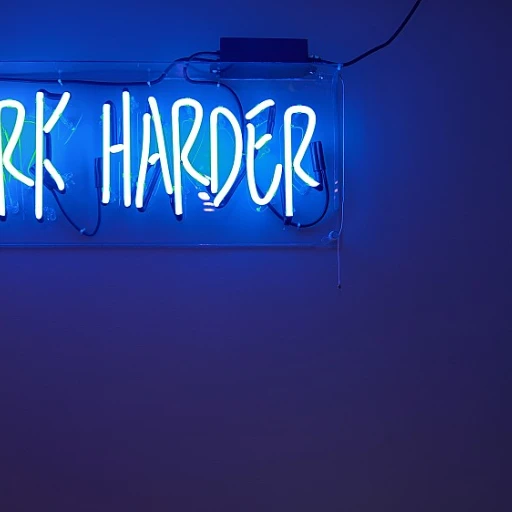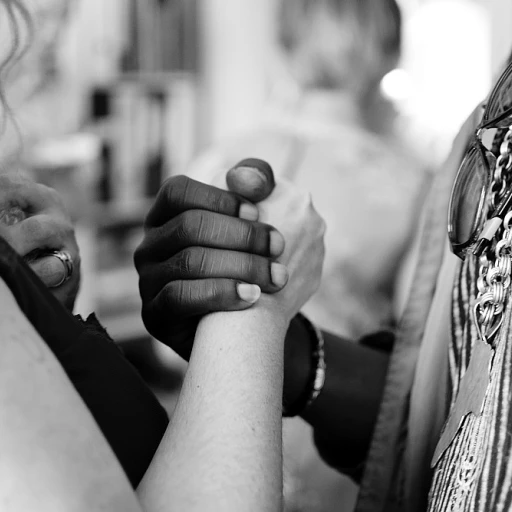
Understanding the Role of a Chief Human Resources Officer
The Strategic Role of a CHRO
The Chief Human Resources Officer (CHRO) plays a pivotal role in shaping the workforce dynamics of an organization. As the top HR executive, the CHRO is responsible for developing and executing human resource strategies that align with the overall business objectives. This includes overseeing talent management, organizational development, and employee engagement initiatives. In the evolving landscape of corporate governance, the CHRO's role is increasingly intertwined with diversity, equity, and inclusion (DEI) efforts.
Driving DEI Initiatives
In recent years, DEI has become a cornerstone of HR leadership. Companies are recognizing the importance of fostering a diverse and inclusive workplace to drive innovation and business success. The CHRO is at the forefront of these efforts, tasked with implementing DEI programs that promote equity and inclusion across all levels of the organization. This involves not only setting strategic goals but also ensuring that DEI initiatives are integrated into the company's culture and operations.
Challenges and Opportunities
While the role of the CHRO is crucial in advancing DEI, it is not without its challenges. Organizations often face resistance to change, and the effectiveness of DEI efforts can be difficult to measure. However, the potential benefits of a well-executed DEI strategy are significant, including improved employee satisfaction, enhanced corporate reputation, and a stronger competitive edge. As companies navigate these challenges, the CHRO must remain adaptable and forward-thinking, leveraging data and insights to drive meaningful change.
For more insights into how workforce dynamics are being reshaped, consider exploring the impact of workforce reductions on HR leadership strategies.
The Evolution of Diversity, Equity, and Inclusion in HR
The Evolution of DEI in Human Resource Management
In recent years, diversity, equity, and inclusion (DEI) have become vital components of business strategy in organizations globally, especially among HR leadership roles. Originally introduced as diversity initiatives focused on legally mandated civil rights compliance, DEI has significantly evolved and diversified its scope within the corporate landscape. The journey of DEI is intrinsically linked to the changing demographic composition of the workforce. The United States, in particular, has seen businesses acknowledging the importance of representing their diverse employee base. However, more than representation, companies now view DEI as an integral element for fostering innovation, boosting employee morale, and enhancing competitiveness. This shift marks the transformation from reactive corporate policies to proactive DEI efforts. Organizations have started to adopt a more strategic approach, embedding diversity equity into their corporate management and integrating inclusion DEI into their core business operations. The focus has shifted from mere compliance to strategic DEI initiatives that align with long term business goals. Additionally, advancement in DEI is reflected through a variety of innovative programs and policies. Modern companies are designing merit based rewards, promoting equitable opportunities, and managing a gamut of DEI strategic and educational initiatives that are tailored to fostering inclusive work environments. It's no longer enough for an organization to say it values diversity; actions translate into tangible efforts that require due diligence and accountability. To further reinforce the significance of these practices, leaders in HR positions recognize the need for conducting a pay equity audit. Such efforts ensure that compensation practices align with the wider DEI mission of providing fair and equitable treatment across all levels of employment. This demonstrates a commitment to addressing the broader systemic issues of inequity that might still lurk within the organization. Indeed, successful DEI strategies are those that are bespoke, holistic, and tactfully integrated into the ethos of the company. Forward-thinking organizations are adept at leveraging their workforce’s diversity as a competitive advantage, ensuring that employees feel valued and part of a unified company culture. This is no small feat, but for HR leaders ready to embrace the change, the benefits to the organization and the wider society can be monumental.Challenges Facing DEI in Modern Organizations
Examining the Obstacles DEI Faces in Today's Workplaces
The journey of diversity, equity, and inclusion initiatives within organizations has been a complex one, marked by achievements and setbacks. When tackling DEI programs, various challenges arise, impacting the effectiveness of these efforts in fostering truly inclusive corporate cultures. One primary challenge is rooted in a resistance to change and the inertia that may be present within longstanding corporate structures. As organizations evolve, the systems and policies established may not be conducive to the dynamic nature of DEI initiatives. In fact, in some cases, the structural frameworks of the company are so deeply ingrained that any alteration, such as integrating DEI strategic initiatives, may seem daunting. There's also the issue of measuring the success of DEI programs. Unlike other business metrics, such as financial performance or productivity, assessing the impact of DEI tends to be less straightforward. Companies struggle to develop merit based indicators that accurately reflect progress in diversity and inclusion efforts, often relying on generalized surveys that don't capture the nuanced experiences of employees. Additionally, DEI initiatives can often face setbacks due to a lack of commitment from leadership. While many organizations in the United States publicly pledge their dedication to diversity equity, such statements need to be supported by substantial actions and resources. Failure to do so can lead to skepticism among employees, as they may perceive DEI policies as mere window dressing rather than avenues for meaningful change. Cultural differences across global operations also present a hurdle, as local perceptions of diversity and inclusion can vary significantly. What might be considered equitable in one region may not resonate in another, and companies must navigate these differences carefully to develop inclusive policies on a broader scale. Given these challenges, DEI efforts require continuous reinvention and a willingness to adapt. Exploring innovative approaches as organizations redefine their DEI outlook can shed light on effective strategies for overcoming these obstacles. For more insights into the evolving aspects of DEI within the HR realm, engaging with talent consulting can offer new perspectives and solutions as highlighted here.Is DEI Still Relevant in HR Leadership?
Relevance of DEI in Today's HR Leadership
Despite ongoing conversations, the relevance of Diversity, Equity, and Inclusion (DEI) initiatives in HR leadership continues to generate debate. Amidst the evolution of DEI, some might question whether it's becoming obsolete. However, there are significant factors affirming its enduring importance. Firstly, companies benefit from embracing diverse perspectives, as they directly impact organizational success and employee satisfaction. Research consistently shows that diversity within teams can lead to enhanced creativity, problem-solving, and better decision-making. This drives business outcomes and opens a window to more opportunities. In the United States, where civil rights movements have left a lasting impact, organizations must continue to prioritize equity and inclusion strategies. DEI efforts are integral in addressing systemic inequalities, which remain prevalent in many corporate structures. Organizations persisting with these strategies benefit from a more inclusive environment, ultimately fostering a more engaged workforce. Moreover, the DEI initiatives offer a framework for companies to navigate complex socio-cultural dynamics. Incorporating DEI into management and corporate level strategies sends a clear signal to board directors and stakeholders that the organization values diverse inputs and inclusive growth. It's important for HR leaders to craft DEI programs that adapt to the shifting business landscape and societal expectations. This requires a merit-based approach rather than one founded solely on compliance, ensuring initiatives resonate with the company's mission and ethos. In conclusion, while challenges remain, DEI's relevance within HR management continues to endure. The emphasis must be on long-term commitment and strategic implementation, ensuring these initiatives align with the broader objectives of the organization. Corporate leadership that steadfastly champions diversity inclusion, equity inclusion, and strategic DEI policies is likely to benefit from sustained success and a reputation for being a forward-thinking company.Innovative Approaches to DEI in HR
Innovative Strategies for Integrating DEI into HR Practices
Innovation in diversity, equity, and inclusion (DEI) is more important than ever as organizations attempt to navigate a rapidly changing social landscape. Though some may claim that DEI efforts are losing momentum, many companies recognize the need to adopt creative approaches to make impactful and sustainable changes. In contemporary corporate environments, DEI initiatives have become essential to fostering a culture that values all employees. Organizations are increasingly integrating DEI policies at every level, opening windows for transformative change. Here, we outline several innovative strategies that businesses can implement to promote diversity inclusion effectively:- Data-Driven Decision Making: Companies are utilizing metrics and analytics to assess the efficacy of their DEI programs. By analyzing key performance indicators related to diversity equity, businesses can refine their strategies and pinpoint areas needing improvement.
- Inclusive Management Training: Progressive organizations are developing training programs that equip leaders with the skills needed to foster inclusive environments. By doing so, they create leadership aware of diversity dynamics, enhancing overall equity inclusion in the workplace.
- Merit-Based and Equitable Recruitment: HR leaders are emphasizing merit-based hiring algorithms that account for diverse candidate pools. This approach helps address biases and ensures qualified individuals from varied backgrounds join the company.
- Employee Resource Groups (ERGs): Organizations in the United States are supporting ERGs as a platform for diverse voices within the company. These groups encourage dialogue and provide employees with opportunities to influence DEI-related decisions.
- Collaboration on DEI Initiatives: Companies are partnering with external organizations to stay updated on DEI trends and develop collaborative efforts that reinforce their internal initiatives. Such partnerships can lead to innovative and shared best practices.
- Engagement through Storytelling: Leveraging personal stories from employees and leadership can humanize DEI efforts. Storytelling is an effective way of sharing diverse perspectives, promoting empathy, and driving cultural change within the business.













